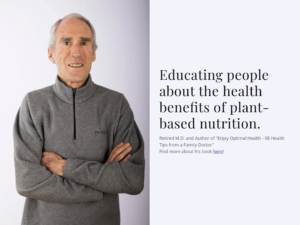 THINGS ABOUT CINNAMON YOU MIGHT NOT KNOW
THINGS ABOUT CINNAMON YOU MIGHT NOT KNOW
Health column by Dr. Greg Feinsinger. Champion of Whole Food Plant Based Living and righteous person.
Plant-based foods with intense color or flavor are loaded with antioxidants and other health-promoting micronutrients. Herbs and spices are examples of intensely flavored foods. Cinnamon is a spice that is both intensely colored and intensely flavored, and is used in cuisines of many cultures throughout the world.
Cinnamon comes from the inner bark of cinnamon trees, and is usually used in the powdered form. There are two main types of cinnamon, which come from two different species of cinnamon trees. The least expensive type–most commonly found in grocery stores in the United States–is cassia cinnamon, also known as Chinese or Vietnamese cinnamon. The second type is called Ceylon cinnamon, which has a more subtle taste and can be ordered over the internet.
According to Dr. Michael Greger’s book “How Not to Die,” cassia cinnamon has been shown to be as effective in lowering blood sugar in diabetics as metformin, the leading diabetic drug. However, studies have not shown this effect with Ceylon cinnamon.
Cassia cinnamon has a downside: it contains coumarin, which can cause liver and kidney toxicity in doses of over 1 teaspoon a day for adults, and over a quarter of a teaspoon a few times a week for children. Ceylon cinnamon has much lower concentrations of coumarin, and is therefore safe in the amounts most people use.
In his book “Eat to Beat Disease,” Dr. William Li notes that spices such as cinnamon have been shown in lab studies to enhance the body’s five defense systems, although human studies have not been done yet:
- angiogenesis (the formation of new blood vessels) These spices help the body form new blood vessels when needed in conditions such as cardiovascular disease; and they help prevent harmful new blood vessels needed for cancer growth.
- regeneration—from stem cells
- a healthy gut microbiome
- DNA protection
- the immune system
A good way to get some cinnamon every day is to sprinkle it on your oatmeal in the morning, or sprinkle it on a layer of unsweetened apple sauce on toast made from low sodium Ezekiel bread. It also tastes good on popcorn.
Bottom line: Cinnamon is good for you, but if you use very much of it (close to 1 teaspoonful a day or more) buy Ceylon cinnamon.
Leave a Reply